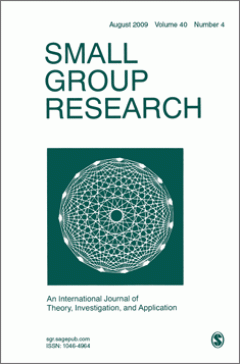Filter by

Coda : American Patrimonialism : The Return of the Repressed
Patrimonialism, until fairly recently, seemed an archaic social form, largely replaced by bureaucratic rationalism. That confident view of modernity, in the histories that Max Weber and his followers wrote, deserves to be challenged as patrimonial regimes reappear in states and firms throughout the world. This article is my attempt to mount that challenge. I first revisit Weber’s conception of …
- Edition
- Vol. 636 no. 1, July 2011.pp. 204-230
- ISBN/ISSN
- 00027162
- Collation
- -
- Series Title
- The ANNALS of the American Academy of Political and Social Science
- Call Number
- -

Who Becomes a Terrorist? : Poverty, Education, and the Origins of Political V…
Many studies of the social backgrounds of terrorists have found that they are wealthier and better educated than the population from which they are drawn. However, studies of political behavior have shown that all forms of political involvement are correlated with socioeconomic status. among those who are politically active, opportunity costs may lead those involved in nonviolent activities to …
- Edition
- Volume 63, Issue 02, April 2011. pp. 203-245
- ISBN/ISSN
- 00438871
- Collation
- -
- Series Title
- World Politics
- Call Number
- -

Guns and Butter? Regime Competition and the Welfare State during the Cold War
Scholars from a number of disciplines have argued that the massive expansion of the welfare state in the postwar period was at least in some part a byproduct of the cold war and the associated political competition between two rival regime blocs. However, the question of whether regime competition fuelled welfare-state growth has never been subject to systematic examination. Applying spatial ec…
- Edition
- Vol. 63, Number 2, April 2011.pp.246-270
- ISBN/ISSN
- 00438871
- Collation
- -
- Series Title
- World Politics
- Call Number
- -

Social Policy by Popular Demand
Why are unemployment benefits more generous in some countries? This article argues that citizens trade off the redistributive and insuring effect of social insurance. As a result, the distribution of risk in a society has important consequences via popular demand for social policy-making. At the microlevel, the article shows that, in addition to income, the risk of unemployment is a key predict…
- Edition
- Vol. 63< Number 2, April 2011.pp.271-299
- ISBN/ISSN
- 00438871
- Collation
- -
- Series Title
- World Politics
- Call Number
- -

The Enemy Within : Personal Rule, Coups, and Civil War in Africa
Why do rulers employ ethnic exclusion at the risk of civil war? Focusing on the region of sub-Saharan Africa, the author attributes this costly strategy to the commitment problem that arises in personalist regimes between elites who hold joint control of the state's coercive apparatus. As no faction can be sure that others will not exploit their violent capabilities to usurp power, elites maneu…
- Edition
- Vol. 63, Number 2, April 2011. pp. 300-346
- ISBN/ISSN
- 00438871
- Collation
- -
- Series Title
- World Politics
- Call Number
- -

Can Islamists Become Moderates? Rethinking the Inclusion-Moderation Hypothesis
Recent years have seen a surge of studies that examine the inclusion-moderation hypothesis with reference to political Islam: the idea that political groups and individuals may become more moderate as a result of their inclusion in pluralist political processes. Most of these interventions adopt one of three foci: (1) the behavioral moderation of groups; (2) the ideological moderation of groups…
- Edition
- Vol. 63, Number 2, April 2011. pp. 347-376
- ISBN/ISSN
- 00438871
- Collation
- -
- Series Title
- World Politics
- Call Number
- -

Social Category Salience Moderates the Effect of Diversity Faultlines on Info…
Faultlines—hypothetical dividing lines splitting a group into homogeneous subgroups based on the distribution of demographic attributes—are frequently assumed to be detrimental to group outcomes because they operationalize social categorizations. However, a literature review indicates that this is not always the case. We argue that diversity faultlines and social categorizations are not necessa…
- Edition
- Vol. 42 no. 3, June 2011 .pp. 257-282
- ISBN/ISSN
- 10464964
- Collation
- -
- Series Title
- Small Group Research
- Call Number
- -

Communication, Performance, and Perceptions in Experimental Simulations of Re…
The response of groups to the experience of coping with resource dilemmas has been an object of study by scholars in several of the social and behavioral sciences. Social norms, trust, and the perception of group identity form cooperative mechanisms critical to group cooperation. However, the opportunity to communicate has been singled out as the most important factor influencing group cooperat…
- Edition
- Vol. 42 no. 3, June 2011 .pp. 283-308
- ISBN/ISSN
- 10464964
- Collation
- -
- Series Title
- Small Group Research
- Call Number
- -

Faultlines, Fairness, and Fighting : A Justice Perspective on Conflict in Div…
Most people can recall instances at work where thankless tasks get in the way of tasks that lead to big rewards. This typically leads people in a group to a struggle with others over how to approach their work and set priorities. Inspired by such conversations with many employees, we develop a theory to understand how task conflict can be linked to distributive injustice. Using a survey from 42…
- Edition
- Vol. 42 no. 3, June 2011.pp. 309-340
- ISBN/ISSN
- 10464964
- Collation
- -
- Series Title
- Small Group Research
- Call Number
- -

The Existential Center of Small Groups : Member’s Conduct and Interaction
In every society groups rather than individuals are given responsibility for producing results that individuals potentially could produce just as well, but without the benefits of group effort. Once a small discussion group is convened, the members can be counted on to interact, often at length and sometimes contentiously, incontrovertible evidence that their interaction accomplishes something …
- Edition
- Vol. 42 no. 3, June 2011.pp. 343-358
- ISBN/ISSN
- 10464964
- Collation
- -
- Series Title
- Small Group Research
- Call Number
- -

Advancing Group Research : The (Non) Necessity of Behavioral Data?
Behavioural data are important for group research and are widely used to inform and validate relevant theoretical propositions. There is more debate about the role of such data in illuminating the psychological processes that underpin group behaviour itself. This article focuses on this debate and outlines that behavioral data are limited because (a) they have difficulty distinguishing between …
- Edition
- Vol. 42 no. 3, June 2011.pp. 359-373
- ISBN/ISSN
- 10464964
- Collation
- -
- Series Title
- Small Group Research
- Call Number
- -

WHAT IS THE PUBLIC VALUE OF GOVERNMENT ACTION? TOWARDS A (NEW) PRAGMATIC APPR…
There has been a resurgence of interest in values in recent public administration research, based on two distinct arguments. For different reasons, neither approach is likely to secure a robust normative basis for public endeavours. These reasons are assessed, using an alternative body of theory rooted in contemporary social theory that we term, ‘new pragmatism’. New pragmatic ideas are deploye…
- Edition
- Volume 89, Issue 2, June 2011. pages 226–241
- ISBN/ISSN
- 00333298
- Collation
- -
- Series Title
- Public Administration
- Call Number
- -

LEADERSHIP IN PUBLIC SERVICES NETWORKS : ANTECEDENTS, PROCESS AND OUTCOME
In this article, the authors examine the implementation of policy aimed to promote the role of organizational networks and distributed leadership in the establishment and consolidation of public service reform. In theory, leadership and networks should complement each other, with the less hierarchical logic of the network allowing leadership of change, distributed among network members, rather …
- Edition
- Volume 89, Issue 2, June 2011. pages 242–264
- ISBN/ISSN
- 00333298
- Collation
- -
- Series Title
- Public Administration
- Call Number
- -

THE LIMITATIONS OF PUBLIC MANAGEMENT NETWORKS
With regard to public management network theory development, among the most important issues that remain is a recognition of the limitations of networks. Networks often find reasonable solution approaches, but then run into operational, performance, or legal barriers that prevent the next action step. Networks face challenges in converting solutions into policy energy, assessing internal effect…
- Edition
- Volume 89, Issue 2, June 2011. pages 265–284
- ISBN/ISSN
- 00333298
- Collation
- -
- Series Title
- Public Administration
- Call Number
- -

ANTECEDENTS OF ORGANIZATIONAL INNOVATION : THE DIFFUSION OF NEW PUBLIC MANAGE…
The relation between leadership, the context in which it takes place and the adoption of organizational innovations associated with New Public Management (NPM) is explored in an empirical analysis of Danish local government. Two different strategies for conceptualizing NPM are contrasted: (1) treating NPM as one phenomenon; and (2) acknowledging important differences between organizational inno…
- Edition
- Volume 89, Issue 2, June 2011, pages 285–306
- ISBN/ISSN
- 00333298
- Collation
- -
- Series Title
- Public Administration
- Call Number
- -

PUBLIC POLICY NETWORKS AND ‘WICKED PROBLEMS’ : A NASCENT SOLUTION?
The last two decades have seen a shift in public services organizations from hierarchies to networks. Network forms are seen as particularly suited to handling ‘wicked problems'. We make an assessment of the nature and impact of this shift. Using recent evidence from the United Kingdom (UK) National Health Service (NHS), we explore the nature and functioning of eight different public policy net…
- Edition
- Volume 89, Issue 2, June 2011. pages 307–324
- ISBN/ISSN
- 00333298
- Collation
- -
- Series Title
- Public Administration
- Call Number
- -

POLICY ENTREPRENEURSHIP IN THE DEVELOPMENT OF PUBLIC SECTOR STRATEGY : THE CA…
The development of health policy is recognized as complex; however, there has been little development of the role of agency in this process. Kingdon developed the concept of policy entrepreneur (PE) within his ‘windows’ model. He argued inter-related ‘policy streams' must coincide for important issues to become addressed. The conjoining of these streams may be aided by a policy entrepreneur. We…
- Edition
- Volume 89, Issue 2, June 2011, pages 325–344
- ISBN/ISSN
- 00333298
- Collation
- -
- Series Title
- Public Administration
- Call Number
- -

ADAPTIVE AND MALADAPTIVE RESPONSES OF MANAGERS TO CHANGING ENVIRONMENTS : A S…
This paper examines data collected from senior executives in two Australian government agencies to identify patterns of adaptive and maladaptive responses to change in public sector environments. The conceptual categories of passive maladaptive, active maladaptive and active adaptive responses are all supported by the interview data, with half of the executives expressing predominantly active a…
- Edition
- Volume 89, Issue 2, June 2011, pages 345–360
- ISBN/ISSN
- 00333298
- Collation
- -
- Series Title
- Public Administration
- Call Number
- -

INSTITUTIONAL AND POLITICAL LEADERSHIP DIMENSIONS OF CASCADING ECOLOGICAL CRISES
While some of the future impacts of global environmental change such as some aspects of climate change can be projected and prepared for in advance, other effects are likely to surface as surprises – that is situations in which the behaviour in a system, or across systems, differs qualitatively from expectations. Here we analyse a set of institutional and political leadership challenges posed b…
- Edition
- Volume 89, Issue 2, June 2011, pages 361–380
- ISBN/ISSN
- 00333298
- Collation
- -
- Series Title
- Public Administration
- Call Number
- -

THE STATE AND THE THREAT OF CASCADING FAILURE ACROSS CRITICAL INFRASTRUCTURES…
The threat of cascading failures across critical infrastructures has been identified as a key challenge for governments. Cascading failure is seen as potentially catastrophic, extremely difficult to predict and increasingly likely to happen. Infrastructures are largely privately operated and private actors are thought to under-invest in mitigating this threat. Consequently, experts have demande…
- Edition
- Volume 89, Issue 2, June 2011, pages 381–400
- ISBN/ISSN
- 00333298
- Collation
- -
- Series Title
- Public Administration
- Call Number
- -
 Computer Science, Information & General Works
Computer Science, Information & General Works  Philosophy & Psychology
Philosophy & Psychology  Religion
Religion  Social Sciences
Social Sciences  Language
Language  Pure Science
Pure Science  Applied Sciences
Applied Sciences  Art & Recreation
Art & Recreation  Literature
Literature  History & Geography
History & Geography